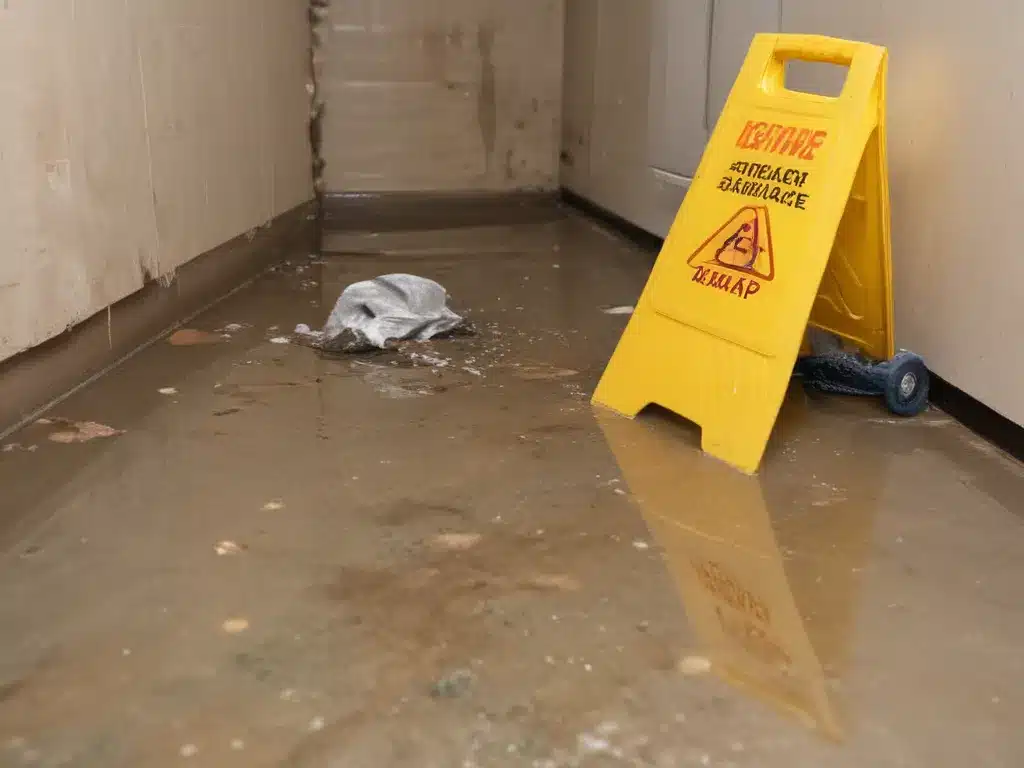Introduction
Sewage backups can be a homeowner’s worst nightmare. They not only cause extensive damage but also pose serious health risks. As a professional cleaning company, we understand the importance of proper cleaning and disinfection after such incidents. In this article, we will delve into the intricacies of cleaning after sewage backups, providing you with valuable insights and practical tips to ensure a safe and thorough restoration process.
Understanding Sewage Backups
A sewage backup occurs when the wastewater from a home or building’s plumbing system flows back into the property due to a blockage or malfunction. This can happen in various situations, such as:
- Clogged sewer lines or drains
- Heavy rainfall or flooding
- Malfunctioning sump pumps or sewage ejector pumps
- Tree root infiltration into sewer lines
The resulting sewage water contains harmful pathogens, bacteria, viruses, and other contaminants, making it a biohazard that requires immediate attention.
Health Risks Associated with Sewage Backups
Exposure to sewage water can lead to several health issues, including:
- Gastrointestinal illnesses
- Respiratory infections
- Skin rashes and infections
- Hepatitis A and other viral infections
Children, the elderly, and individuals with compromised immune systems are particularly vulnerable to the effects of sewage contamination.
Immediate Steps After a Sewage Backup
When confronted with a sewage backup, it’s crucial to act swiftly to minimize the damage and potential health risks. Here are the immediate steps to take:
-
Evacuate the area: Sewage water can be highly contaminated, so it’s essential to evacuate the affected area immediately to avoid exposure.
-
Turn off utilities: Shut off the water supply, electricity, and gas to prevent further damage and potential hazards.
-
Call a professional cleaning company: Attempting to clean a sewage backup on your own can be dangerous and ineffective. Enlist the help of a professional biohazard cleaning company like Adam Cleaning to ensure a thorough and safe cleanup process.
The Professional Cleaning Process
At Adam Cleaning, we follow a comprehensive cleaning process to address sewage backups effectively. Here’s an overview of our approach:
1. Assessment and Containment
Our team conducts a thorough assessment of the affected area to determine the extent of the damage and potential health risks. We then create a containment plan to prevent the spread of contamination to other areas of the property.
2. Water Extraction and Drying
Using specialized equipment, we extract any standing water and thoroughly dry the affected areas. This step is crucial to prevent further damage and mold growth.
3. Removal of Contaminated Materials
Any porous materials, such as carpets, furniture, and drywall, that have been exposed to sewage water may need to be removed and properly disposed of to prevent the spread of contamination.
4. Cleaning and Disinfection
Our team uses industry-approved disinfectants and cleaning agents to thoroughly clean and disinfect all affected surfaces, ensuring the elimination of harmful pathogens and bacteria.
5. Deodorization
Sewage backups can leave behind unpleasant odors. We employ specialized deodorization techniques to eliminate foul smells and restore a fresh, clean environment.
6. Restoration and Reconstruction
Once the cleaning and disinfection process is complete, we can assist with the restoration and reconstruction of any damaged areas, ensuring your property is returned to its pre-incident condition.
Safety Precautions During the Cleaning Process
Our team at Adam Cleaning prioritizes safety during the cleaning process. We follow strict protocols and use appropriate personal protective equipment (PPE) to minimize exposure to hazardous materials. We also ensure proper ventilation and containment measures to prevent the spread of contamination.
Preventing Future Sewage Backups
While sewage backups can occur due to various reasons, there are some preventive measures you can take to reduce the risk:
-
Regular maintenance: Schedule routine inspections and cleanings of your sewer lines and drains to prevent clogs.
-
Install backflow prevention devices: These devices can help prevent sewage from flowing back into your home during a blockage or overflow.
-
Be mindful of what you flush: Avoid flushing non-biodegradable items, such as wipes, feminine hygiene products, and grease, as they can contribute to clogs.
-
Maintain sump pumps and ejector pumps: Ensure these systems are functioning properly and have backup power sources in case of power outages.
-
Landscaping considerations: Avoid planting trees or shrubs too close to sewer lines, as their roots can infiltrate and cause blockages.
Conclusion
Sewage backups can be a daunting and hazardous situation, but with the help of professionals like Adam Cleaning, you can ensure a safe and thorough cleanup process. Our team is equipped with the knowledge, expertise, and specialized equipment to handle even the most challenging sewage backup scenarios. Remember, your health and safety should always be the top priority when dealing with biohazardous situations like sewage backups.







